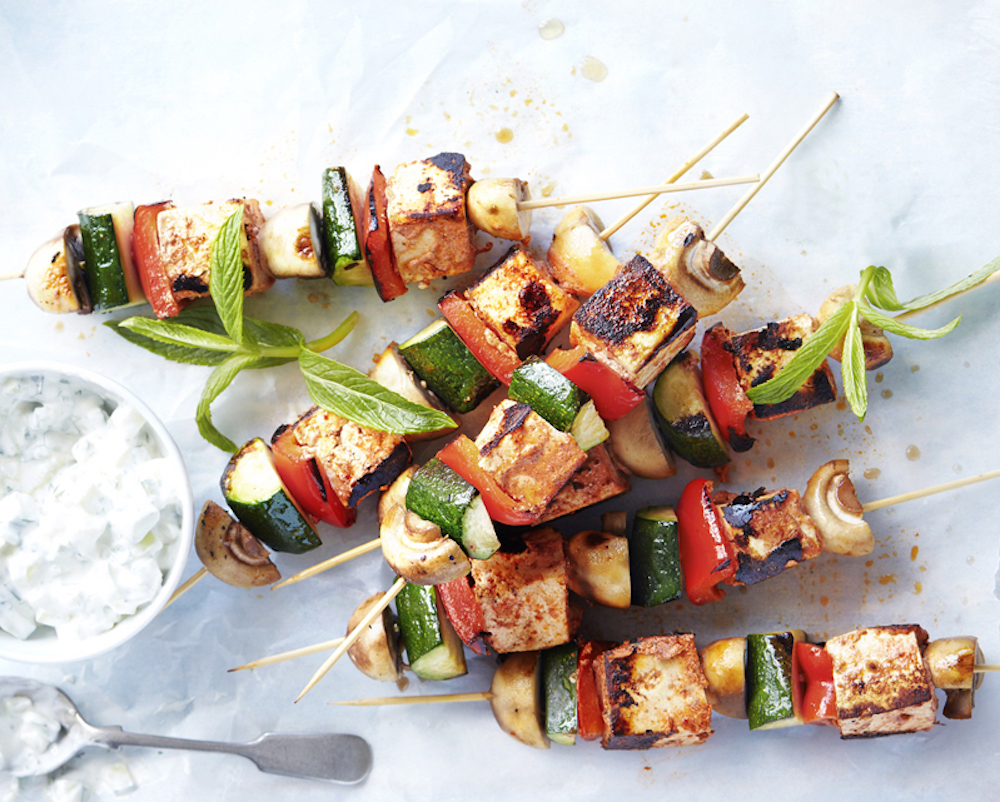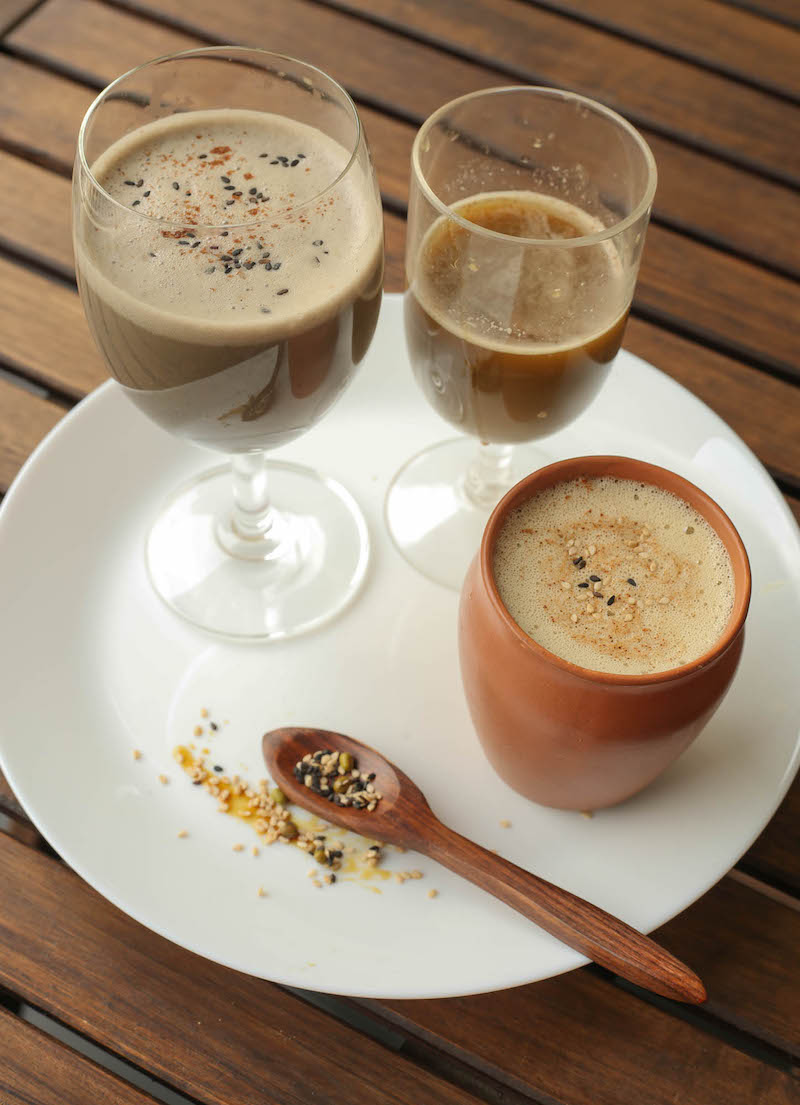Cutting Down On Meat And Dairy Is The Single Best Thing You Can Do To Reduce Your Environmental Impact

From beer and burgers to cheese and chocolate, what’s on our plates has profound impacts on the planet.
Globally, the food supply chain today - from mono-cropping and chemical fertilisers to packaging and transport - accounts for 20% of anthropogenic greenhouse gases , which could greatly change the composition of natural ecosystems and reduce biodiversity.
Over half of these emissions come from meat farming, aquaculture, eggs, and dairy which use 83% of the world’s farmland. But, contrary to popular perception, they supply only 37% of our protein and 18% of our calories. Producing 100g of protein from beef releases about 50kgs of GHG emissions. By comparison, 100g of protein from poultry releases 6kg of GHG emissions, from eggs is 4kg, pulses is 0.5kg and groundnuts is 1kg.
That's why, according to a new study published in the journal Science, a vegan diet is the single best thing you can do to reduce your environmental impact. We've all heard that argument before, but with data collected from 38,700 farms across 119 countries and 40 food products representing 90% of global protein and calorie intake, this might be the most comprehensive analysis yet of the huge environmental impacts of our food production system. In order to understand how producers and consumers of food could reduce their footprint, it assessed food’s impact on 5 important environmental indicators: land use, freshwater use, GHG emissions, water and air pollution.
By impacting not just greenhouse gases, but global acidification, eutrophication, land use and water use, a vegan diet is far better than cutting down on your flights or buying an electric car, environmental scientist Joseph Poore of the University of Oxford, who led the study told The Guardian.
Plant-based protein, like tofu, is far better for the planet and your body, the study shows. Source
Impacts vary with farm sizes, inputs and methods used by producers. But, the environmental impacts of even the lowest-impact animal proteins, including milk, were found to starkly exceed those of vegetable equivalents. The authors explain that this is because, under any cultivation method, the process by which ruminants convert grass into human-edible protein is environmentally damaging, busting the myth that grass-fed beef is an eco-friendly option.
Several other factors make animal agriculture more damaging than vegetable proteins: feed production (maize, soy, pasture) is the dominant cause of deforestation. Additional emissions from enteric fermentation, manure, fish farming and slaughterhouse effluent add to the environmental impacts of animal proteins.
The reason he began the study, Dr Poore says, was to understand if there were any sustainable animal products out there. Over the four years since he began his research, he has turned vegan. The study reveals that a diet that excludes animal products can bring about close to 50% drop in GHG emissions, air and water pollution, and a 76% reduction in land use. That’s an area the size of Australia, the US, China and the EU combined!
Impacts from animal agriculture are expected to increase substantially by 2050. Source
Have your meat and eat it too
By 2050, we will be faced with the challenge of feeding close to 10 billion people. If we continue with our current farming practices, this would require a doubling of world food production. Population growth coupled with rising prosperity in developing economies like India and China will drive up the demand for protein-rich animal foods leading to an increased need for land to grow feed crops. Together, these two factors stand to threaten terrestrial and marine ecosystems, deplete freshwater resources and accelerate climate change. But, is a widespread shift towards a plant-based diet in a limited timeframe, and at a scale capable of arresting global warming and curbing further biodiversity loss possible to achieve? No, say the authors.
But, there are easier choices you can make.
Food production systems across the world are so diverse that their environmental impact varies - from GHG emissions to water and fertiliser use, even among producers of the same agricultural product. For instance, for dairy and beef cattle, high-impact producers produced about 12 times more GHG emissions and used about 50 times more land than their low-impact counterparts. This was true across all products, where a quarter of all producers contributed more than half of a product’s environmental impact.
This means that it is possible to make a significant dent in food emissions without having to go vegan overnight. All you'd have to do is replace animal products from the most environmentally damaging producers with plant-based foods. On the producer front, similarly, it means adopting an agricultural model that replaces the meat and dairy foods from producers with highest environmental impacts with vegetable crops.
A diet that excludes animal products can bring about a 49% reduction in GHG emissions and a 76% reduction in land use. That’s an area the size of Australia, the US, China and the EU combined!
In a scenario where farmed meat forms the mainstay of the diets of 90% of the world's population and the demand for meat is expected to double over the next couple of decades, this approach could make a significant difference, especially in countries like the US where meat consumption is far higher than the global average.
Whether it's finding better ways to grow rice; restoring degraded pastures instead of cutting virgin forests; or curbing food waste, innovation in food production practices, especially in animal agriculture can greatly reduce environmental damage.
A system that encourages and rewards low-impact food producers with subsidies and tax breaks, and incentivises high-impact ones to monitor their impacts and adopt less damaging production practices will spread the benefits of sustainably produced food more widely.
“Today, and probably into the future, dietary change can deliver environmental benefits on a scale not achievable by producers,” the study says. Consumers educated about the true cost of food have the power to drive a transformation in the food industry by demanding better communication with producers and transparency and traceability from the food products we buy.
Sesame seed mylk is a dairy alternative that's quick and easy to make at home. Image: PHC Lifestyle Clinic
Lessons for India
The study has deep implications for India where agriculture accounts for 18% of total GHG emissions and livestock and rice are the main culprits. For example, per kilogram of meat, mutton produced 46kgs of GHG emissions and rice produced 5.6kgs. Emissions from other cereals, fruits and vegetables in India are less than a kg emissions per kg of product.
Besides its obvious environmental benefits, a vegan diet also has positive health impacts. Says Dr Achyuthan Eswar, naturopath and founder of PHC Lifestyle Clinic in Bengaluru, “A plant-based diet has been shown to prevent and reverse the number one killer of people in India today, ischemic heart disease, as well as most of our other leading causes of death.”
Milk is the perfect natural food, he says, adding, “for a calf to grow into a 100 kg cow in six months.” Insulin-like Growth Factor 1 (IGF-1), is a hormone in cow's milk that stimulates the calf's growth and makes this growth spurt possible. In an adult human being, this kind of growth stimulation could cause cancer. Dairy has also been associated with other chronic lifestyle diseases: Atherosclerosis that causes heart attacks and stroke, Type-1 and Type-2 Diabetes Mellitus, Hypertension, PCOS, Asthma, and Autoimmune Diseases. A diet rich in whole plant-based foods can deliver all the essential minerals and phytonutrients we need.
Today, brands such as The Happy Calf and GoodMylk make several plant-based dairy alternatives available in the Indian market - from soya mylk to peanut curds, tofu and tempeh. For meat eaters, companies like GoodDot make plant-based meats, which may be ultra processed plant foods, but are much healthier than meat. Even KFC has promised to make faux meat more accessible.
One need not look much further than the traditional Indian kitchen for substitutes to animal milk. There's ellu neeru, a drink from rural Karnataka made from ground sesame (whole black til) seeds or moonga udhak, a Konkan delicacy made with lightly roasted and ground green gram. And badam mylk. To make almond milk, just soak and grind some almonds and voila! Delicious. You could even grind some almonds without water to make almond butter and store it in the fridge. When you want almond mylk, just take a spoon of the butter and dissolve in water. Instant badam mylk!
Coconut thambulli is a summer delicacy from Uttara Kannada. Just grind a few coconut pieces well with water and some herbs like mint, coriander or curry leaves, add a dash of lemon, some chopped up green chilli, hing, and dry roasted mustard seeds, and you have the perfect end to a South Indian meal. Want a thick set curd? Soak a cup of peanuts and half a cup of brown rice. Grind them well and boil until cooked with a litre or more of water, depending on the thickness you desire. Squeeze in two lemons, mix in some chilli stalks, or add some Rejuvelac and leave it overnight in a warm place.
Thinking Italian? Think pesto! Blend cashews, almond, or walnuts with basil or parsley, add a sprinkling of pepper and miso paste (a soya-based healthier alternative for salt) with a dash of lemon juice, and you have an amazing dip ready in less than two minutes. If you want a cheese, like Parmesan, to sprinkle over the top, make Cashew Parmesan Cheeze by grinding cashew nuts to a powder along with nutritional yeast powder. Want a gooey, stretchy cheese? Boil some sweet potatoes and blend them (with skin!) along with cashew powder, nutritional yeast, garlic, lemon juice, pepper, and miso. If you want it to taste like Maggi, powder some sun-dried tomatoes and mix in the powder. Make a box and keep it in the fridge, and it will last for a day.
This article was produced in collaboration with PHC Lifestyle Clinic. For more recipes and regular updates on plant-based dairy alternatives, visit dietfruitfully.com.








